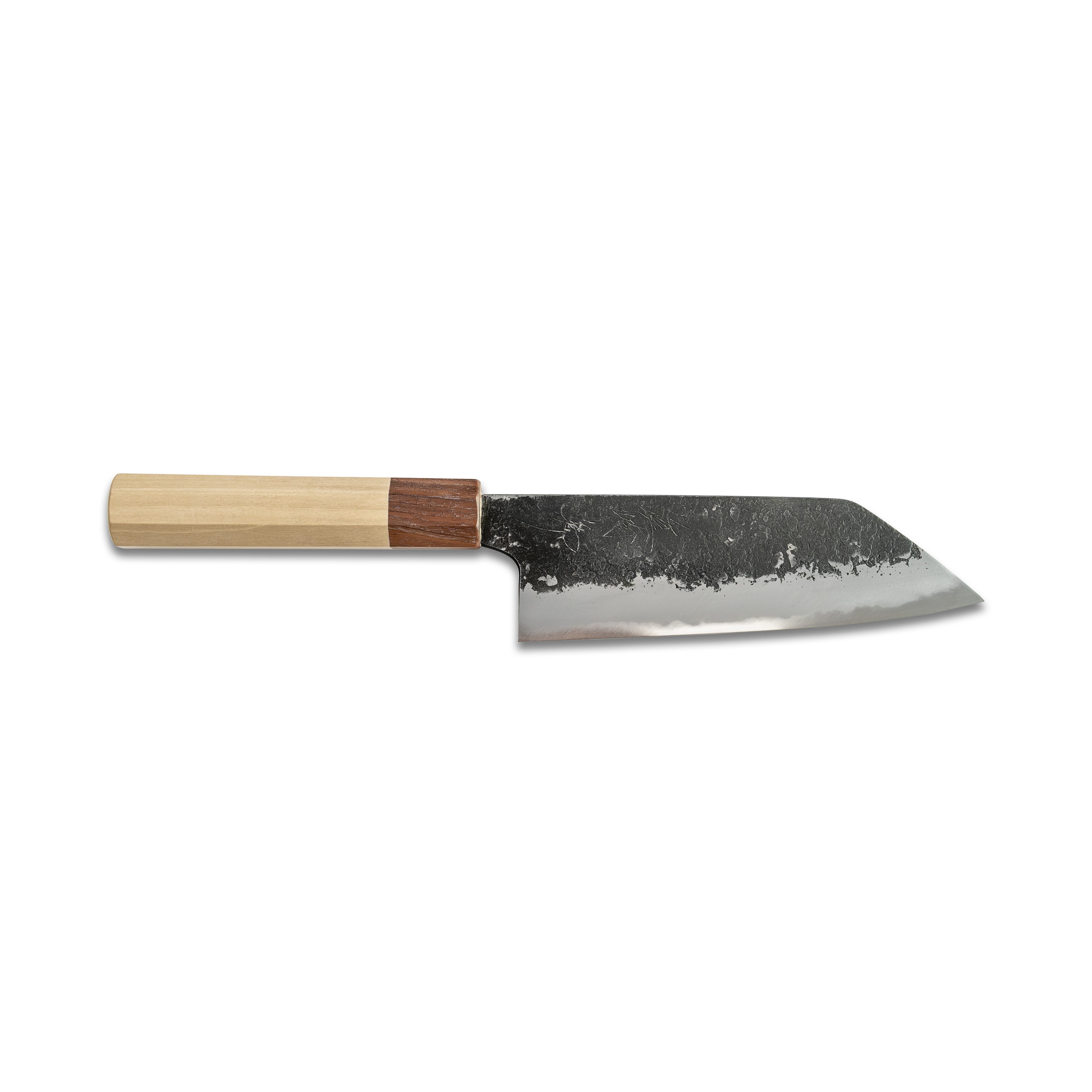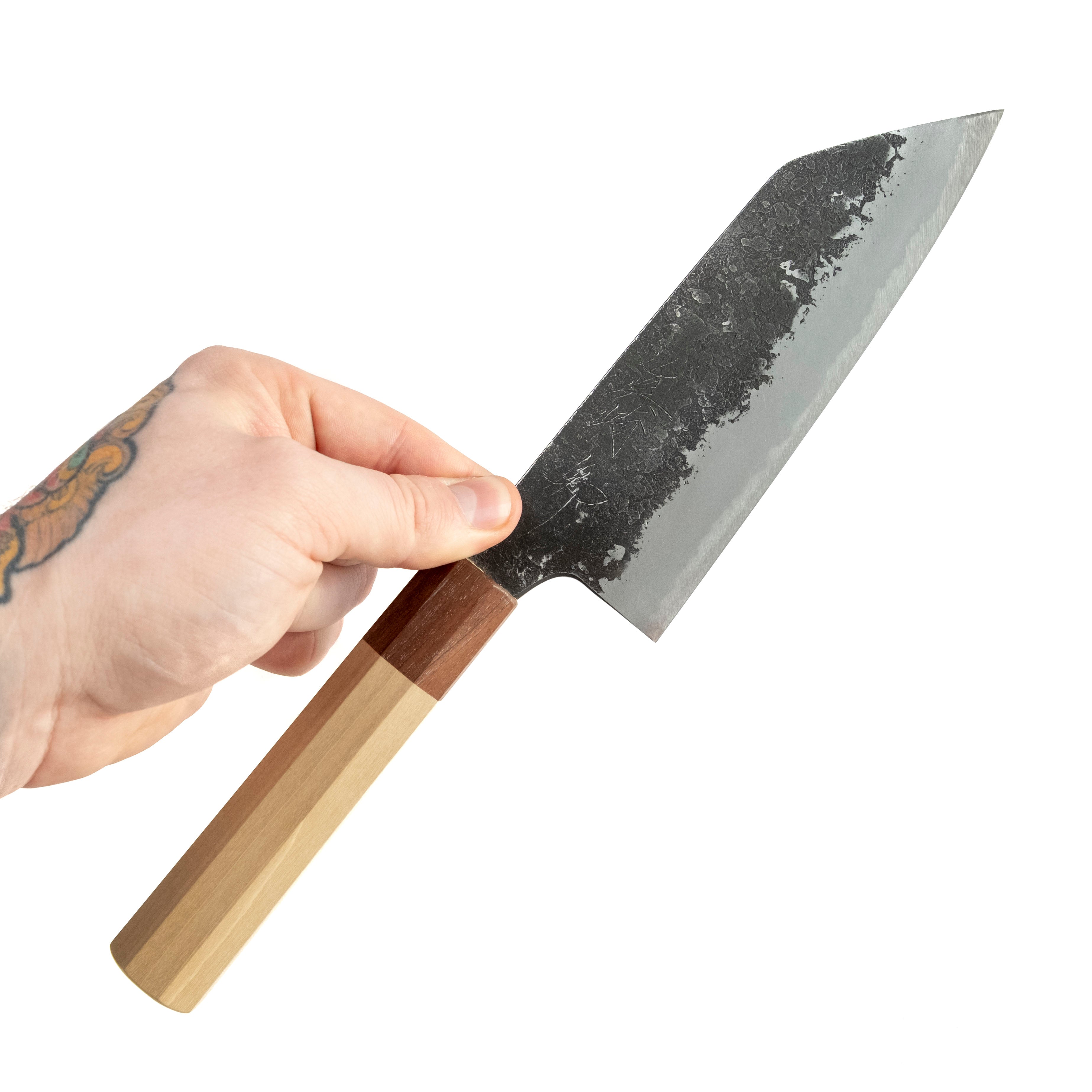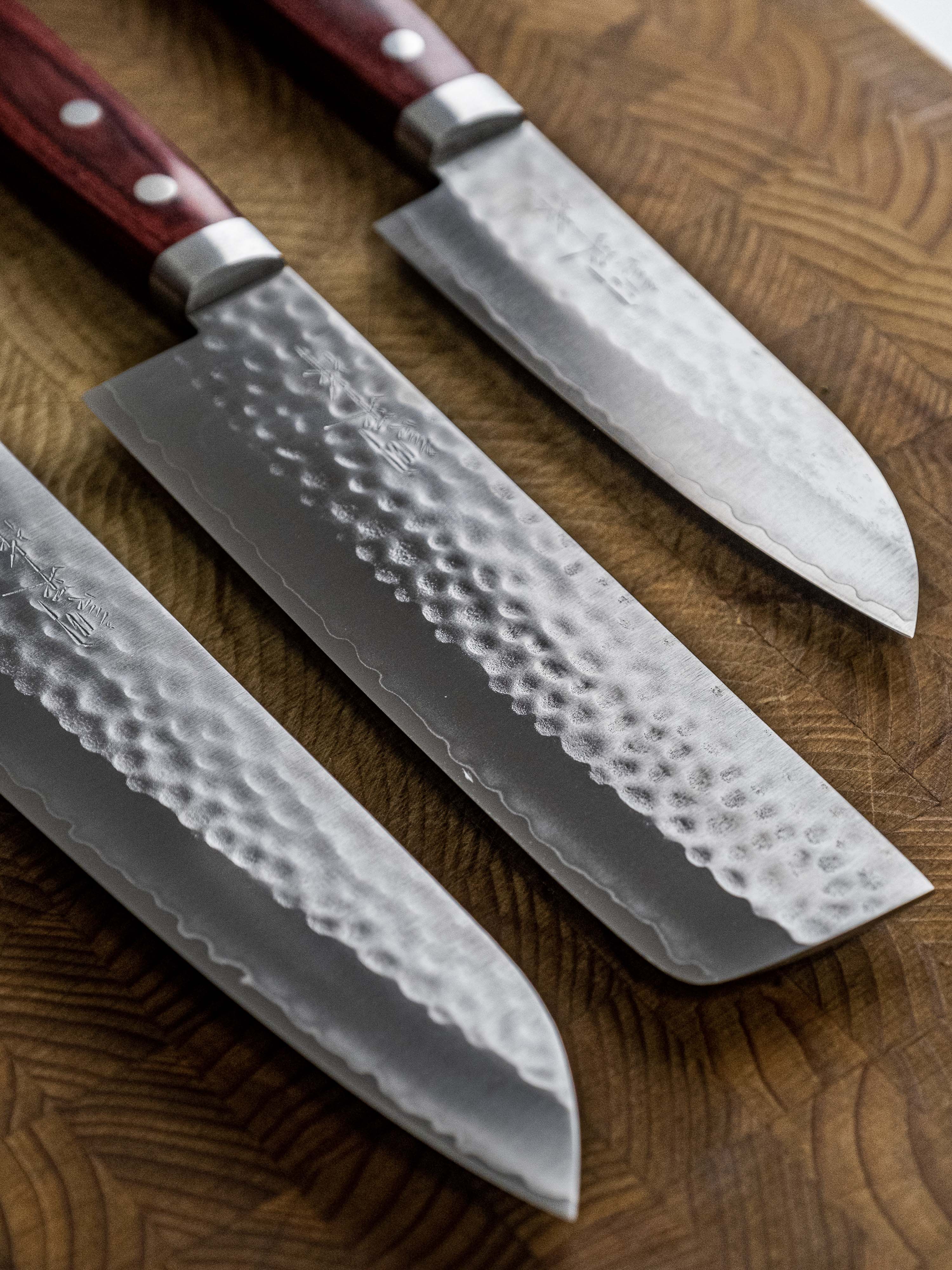Menu


















Naoki Mazaki Kurouchi Nashiji Bunka 165 mm
- Sale price
- $269.95
- Regular price
- $299.95
- You save
- $30 (11%)
Taxes and shipping calculated at checkout
Out of stock
Product Information
| Blade Length | 175 mm |
| Total Length | 315 mm |
| Steel | Shirogami (White #2) |
| Handle | Magnolia |
| Ferrule | Walnut |
| Rockwell | 62-63 |
| Height Spine to heel | 53 mm |
| Width at Spine | 4.3 mm |
| Weight | 180 grams |
| Bevel |
Double (50/50) |
The Blacksmith
Mazaki-san is a relatively new blacksmith but has gained a reputation as a great knife maker in a short amount of time. He focuses on producing knives in the most traditional ways possible and completes each knife by himself, only having added his first team member (His wife who does not help with production), in the past year. Mazaki-san uses a combination of pre-laminated and in-house laminated steels in an effort to makes knives in the most traditional ways possible and finishes each knife by hand polishing them on Japanese natural whetstones. He worked at Yoshikane Hamono, another very well regarded knife maker, for a number of years but decided to pursue the dream of opening his own business and we could not be happier that he did! Mazaki-san’s knives typically have a nice, tall blade height, and the profiles are always evolving with each batch, giving them a distinctly unique look. The distal taper on his knives are characteristic of Sanjo region knives, coming thick out of the handle, and thin at the tip.
The Knife
The bunka is to the santoku what the kiritsuke is to the gyuto. With a more aggressive tip and flatter profile than most santokus this bunka will excel at chopping and piercing tasks, and also more detailed tip work. The Bunka is an all purpose shape that is very similar to the ever versatile santoku. With its more aggressive K-tip, or reverse tanto tip, these guys can do everything the santoku can, but excel in finer tip work for things like brunoise shallots and garlic.
- This Knife is made from 3 layers of material; A layer of iron on each side protecting a layer of carbon steel at the core, in a process referred to as Sanmai or forge welding. Iron and carbon steel are both susceptible to rust and must be kept dry and clean at all time’s to avoid oxidation and discolouration.
- Simply wipe the knife with a damp cloth immediately after use.
- Wash with regular dish soap and warm water using a none abrasive sponge or cloth.
- Never put your knife in the dishwasher! The extreme heat will ruin the wooden handle.
- Highly acidic ingredients (Onions, Tomatoes, Citrus) Will cause rust and oxidation to happen faster, thus the user must ensure the knife is wiped clean immediately after working with such an ingredient.
- Should any rust form it can be removed using a rust eraser or a mixture of Baking soda and water to simply scrub it clean.
- Avoid Bones, Frozen foods, nuts and hard candies or anything other than fruits, vegetables and proteins.
Recommended for You
- Choosing a selection results in a full page refresh.
SHOP
IN-STORE CLASSES/SERVICES
STORE POLICIES
CONTACT US
142 JAMES ST. S HAMILTON ON L8P3A2
MONDAY - SATURDAY :
11 AM to 6 PM
SUNDAY : CLOSED
195 NORSEMAN ST UNIT 14 ETOBICOKE ON M8Z0E9
MONDAY - SATURDAY :
11 AM to 6 PM
SUNDAY : CLOSED
Country/region
© 2025, SHARP Knife Shop Powered by Shopify





